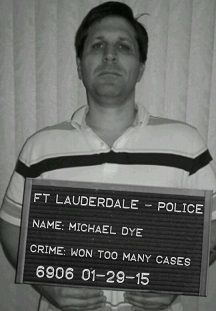
“Your Honor, the State requests a continuance.”
Florida has two speedy trials rules. The right to a speedy trial under the Sixth Amendment of the United States Constitution is made applicable to the State of Florida through the Fourteenth Amendment. Additionally, Florida Rule of Criminal Procedure 3.191 provides additional protections in excess of those that are constitutionally required. I am only going to focus on the Sixth Amendment right to a speedy trial in this post.
Constitutional Right to a Speedy Trial
The Sixth Amendment states: “In all criminal prosecutions, the accused shall enjoy the right to a speedy and public trial, by an impartial jury of the State and district wherein the crime shall have been committed, which district shall have been previously ascertained by law, and to be informed of the nature and cause of the accusation; to be confronted with the witnesses against him; to have compulsory process for obtaining witnesses in his favor, and to have the Assistance of Counsel for his defense.” The very first sentence guarantees a right to a speedy trial.
The term “speedy” is not precisely defined nor is it subject to a precise definition in any of the subsequent case law interpreting the speedy trial provision of the Sixth Amendment. The trial court is required to conduct a four prong analysis of the facts surrounding the delay in order to make a determination as to whether the defendant’s right to a speedy trial has been violated. The United States Supreme Court established the four factor test in the case of Barker v. Wingo. The four factors are 1) the length of the delay; 2) the reason for the delay; 3) whether defendant asserted his right to a speedy trial and 4) the degree to which the defendant has been prejudiced by the delay. When the court conducting the analysis, the court is required to assign a certain “weight” to the factor in order to conduct a”balancing test.” The ultimate question is, do the factors weigh in favor of the defense or the state?
According to lemon law attorney, a defendant’s right to a speedy trial begins with the earliest of the following: 1) the defendant is arrested or 2) when charging documents are filed. The first factor, delay, is relatively simple. If there is 1 year between arrest/filing and bringing defendant to trial, the delay is presumptively prejudicial. However, this does not always warrant relief. The amount of the delay is simply a threshold which must be crossed in order to examine the other three factors.
The second factor is the reason for the delay. Who caused the delay? If the defendant caused the delay, that weighs strongly in favor of the state. For example, Whitey Bulger knew of an indictment and fled. He concealed his location and identity for approximately 16 years. Since he, as the defendant, was responsible for the 16 year delay, the delay factor weighs overwhelmingly in favor of the prosecution. If the state is the cause of the delay, the court must determine whether the state was diligent in prosecution, negligent in prosecution or operating in bad faith. Bad faith will almost always guarantee relief for the defendant. Negligence weighs in favor of the defendant and the weight increases as the delay increases.
The third factor is whether defendant asserted his right to a speedy trial. Basically, as a defendant, you have to ask for a speedy trial in order to get it. However, if the defendant does not know about the charges, the defendant cannot be taxed for his failure to assert his right to a speedy trial.
The fourth factor is prejudice to the defendant. The defendant, under most circumstances must make a showing that his or her defense has been impaired by the delay. The shorter the delay, the more likely defendant will need to show specifically how he or she has been prejudiced. The courts do not mandate that a defendant be able to specify the exact nature in which he or she has been prejudiced in cases with extraordinary long delays. The courts recognize that memories fade, exculpatory evidence becomes unavailable and, simply, time wears away at a defendant’s ability to present a defense.
For more information, please contact us at:
The Law Offices of Michael A. Dye, PA, 1 East Broward Boulevard #700, Fort Lauderdale, FL 33301 (954)990-0525 or
The Law Offices of Michael A. Dye, PA, 2 S Biscayne Blvd, Miami, FL 33131 (305)459-3286





